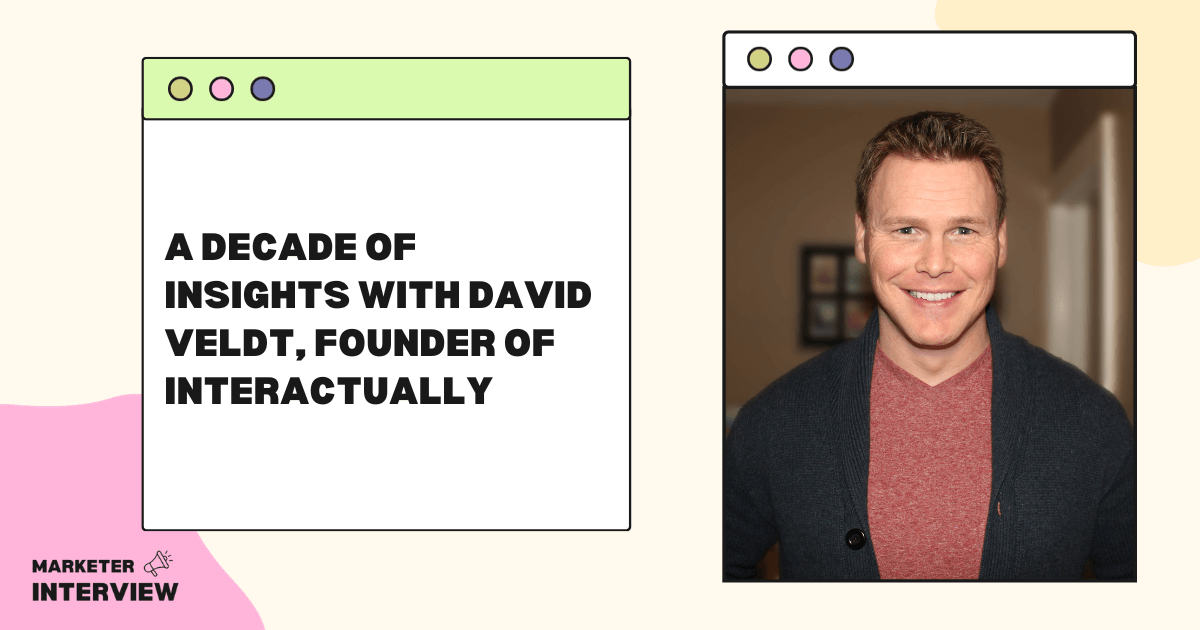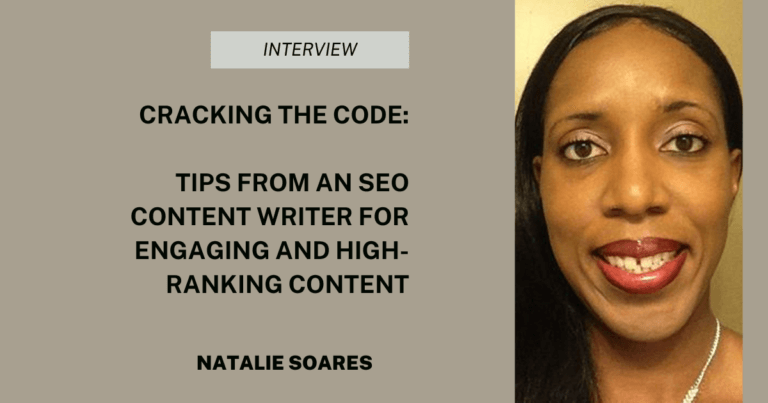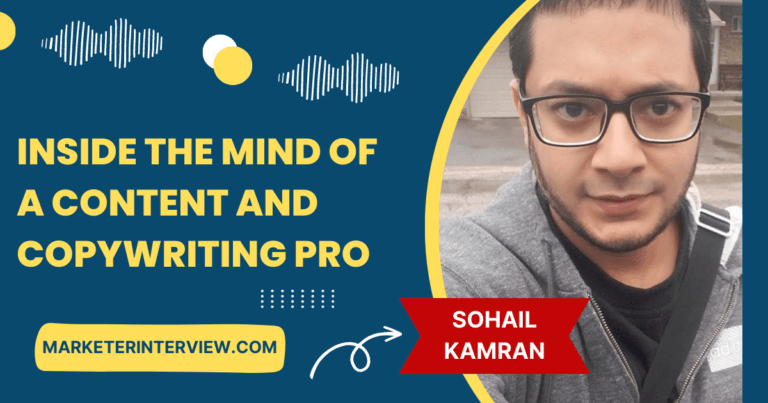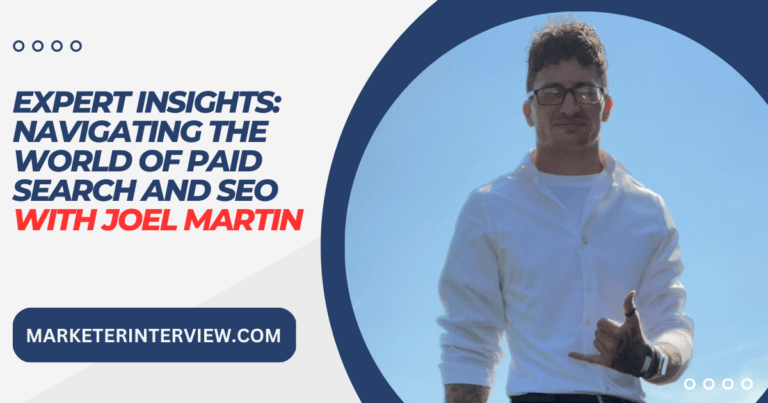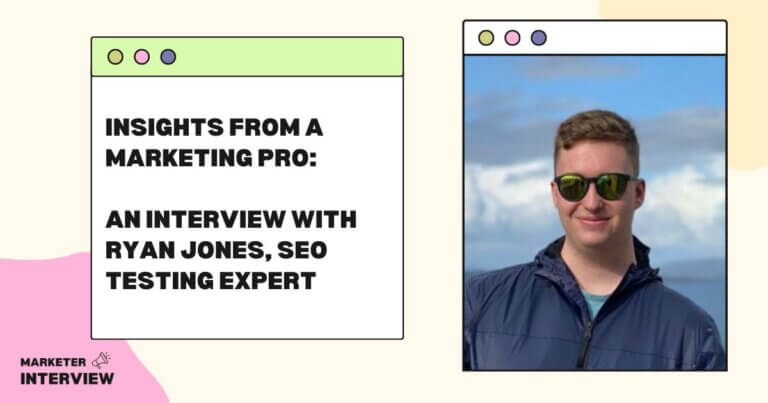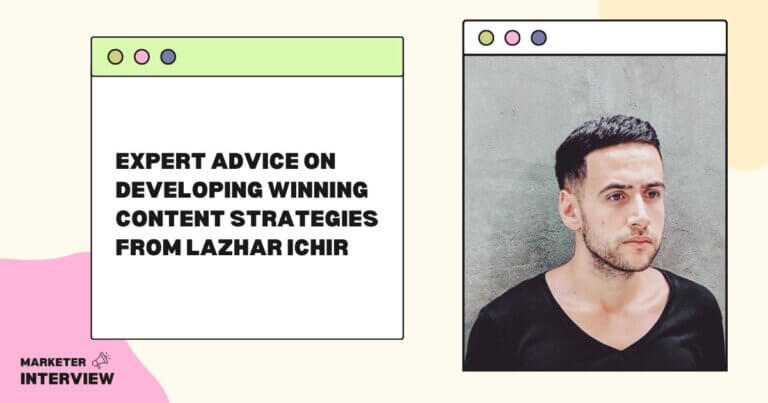A Decade of Insights with David Veldt, Founder of Interactually
Welcome to another insightful interview on Marketer Interview!
Today, we have the privilege of sitting down with David Veldt, the Founder of Interactually.
With a remarkable decade-long journey in the digital marketing realm, David has become a prominent figure, guiding his agency to excel in PPC, web analytics, and enterprise SEO. His expertise has earned him recognition in esteemed publications like Adweek, TechCrunch, and more while being a featured speaker at events and WordCamps.
Let’s explore David’s wealth of experience and glean valuable insights into the dynamic world of digital marketing.
Contents
- 1 Can you share the story of how you ventured into the field of digital marketing and what sparked your interest in PPC, SEO, and analytics?
- 2 In the past decade, you’ve achieved significant milestones. What key lessons have you learned throughout your journey as the Founder of Interactually?
- 3 Given your extensive work in PPC, SEO, and web analytics, can you elaborate on a specific project or campaign that posed unique challenges and how you overcame them?
- 4 You’ve been featured in several publications and spoken at various events. How do you balance the demands of running a digital marketing agency with your role as a thought leader and speaker in the industry?
- 5 Interactually has optimized and configured analytics for over 800 websites. What common pitfalls do you often encounter, and how do you address them to ensure effective analytics for your clients?
- 6 As a Google Partner, what advantages does this partnership bring to your agency, and how has it impacted the way you approach Google Ads and other Google services for your clients?
- 7 With the constantly evolving landscape of social media advertising, how do you stay ahead of trends and ensure that your campaigns on platforms like Facebook and Instagram remain effective?
- 8 In the realm of SEO, particularly enterprise SEO, what strategies do you find most effective in achieving long-term success for your clients, considering the ever-changing algorithms of search engines?
- 9 Could you highlight some essential tools and software integral to your daily workflow in managing PPC, SEO, and analytics for Interactually?
- 10 You’ve worked with diverse clients, from global brands to small businesses. How do you tailor your digital marketing strategies to suit each client’s unique needs and goals?
- 11 Looking towards the future, what emerging trends in digital marketing do you find most exciting, and how do you anticipate they will shape the industry in the coming years?
While I was in college, I started building websites, which led to my first business. Even though I was studying business management and entrepreneurship, I convinced myself I was a web developer.
Once I graduated, I applied to a full-service digital marketing agency as a developer and immediately learned I was, in fact, NOT a developer. However, they said they thought I’d be a better fit for an open position as an SEO Specialist. Marketing – which I’d been studying for four years – combined with the technical web stuff I enjoyed, seemed like an obvious and perfect fit.
The SEO team sat side-by-side with the PPC team, so I picked up quite a bit, but it wasn’t until I moved on to another agency that I learned it in depth. I’d been helping clients with their analytics implementation and reporting all along the way. Still, when I took an in-house corporate role, I had to track and attribute leads through the entire funnel and into the hands of the sales team, and that’s when I became analytics-obsessed.
In the past decade, you’ve achieved significant milestones. What key lessons have you learned throughout your journey as the Founder of Interactually?
The biggest lesson has been to talk to people about the terms they understand and what they care about. As a marketer with a technical background, this area has served me well.
If you’re talking to a CEO or a small business owner, don’t talk to them about PageSpeed scores and schema markup. They want to hear how your work has directly affected their bottom line. A recent survey showed that CEOs feel that marketing metrics tied to business impact less than 60% of the time.
Even impressive hockey stick growth in traffic doesn’t matter to them if you can’t also point to increases in sales and leads.
Likewise, the web development team doesn’t just want a list of every technical issue you find on their site. They want to know which are the most serious, which will have the most significant impact, and what you recommend they do about them.
I’ve never worked with a web development team with spare time on their hands. However, I have worked on projects where progress stalled because our work wasn’t being implemented, so you need to be able to communicate the importance of it while also taking it as far as you can on your end.
Given your extensive work in PPC, SEO, and web analytics, can you elaborate on a specific project or campaign that posed unique challenges and how you overcame them?
Two words that will send a shudder down the spine of anyone in digital marketing: “proprietary software.”
There is nothing inherently wrong with it, of course, but in our field, it presents some unique challenges regarding tracking and attribution of our SEO and PPC efforts. When getting that set up, you can’t just Google instructions or hit up some forums; you have to meet with various stakeholders and have some pretty technical conversations while communicating to the non-technical teams the importance of what you’re doing.
One client had their appointment scheduling web application. We had to work closely with their developers to determine how to fire pageviews, events, and conversions in Google Analytics when none happened by default.
They later launched their video meeting platform, and we had to figure out how to give credit to our Google Ads campaign when an ad click landed on their corporate website, moved on to their video conference site, completed various check-in steps, and finally started the meeting. This involved numerous meetings and communication with developers and the marketing and product teams.
The days of perfect attribution are over, of course, but we try not to let technical barriers be why we can’t have valuable data.
You’ve been featured in several publications and spoken at various events. How do you balance the demands of running a digital marketing agency with your role as a thought leader and speaker in the industry?
I’m always working on it, and I have a lot of room for improvement.
When I started Interactually in 2013, the website would get something like 20 visits a day. I kept writing and sharing posts until one day, I had an article go viral (back when it wasn’t so unusual for a blog post to go viral) and suddenly had 32,000 visits in a single day. Yes, the site crashed multiple times. Many well-known publications are linked to us, and some clients came from it, too.
So, naturally, I continued writing. That would have been the smart thing to do. But, I tend to get sucked into client work. I like my clients a lot. Some have been with Interactually for several years. It’s incredibly fulfilling to get results for them.
However, I have much to share and plan to strike a better balance in 2024. Getting on a stage is exciting, and I love writing more than anything. I just checked and found 51 unpublished posts saved as drafts over the years. That’s… not great.
Interactually has optimized and configured analytics for over 800 websites. What common pitfalls do you often encounter, and how do you address them to ensure effective analytics for your clients?
We work with many healthcare clients, so data collection, retention, and HIPAA are significant concerns and topics we must stay up-to-date on. Sometimes, that involves having conversations with clients about why we simply can’t do something they want to do, and sometimes, it means limiting our data in ways we haven’t in the past.
As technology plows forward, it can be challenging to explain why we know less about site visitors and where they came from than we did a few years ago. But it’s all to the benefit and protection of users, which means we can enjoy better privacy on our healthcare journeys, so everyone has been understanding.
Additionally, most of our client websites were configured with analytics before the sunsetting of Google’s Universal Analytics and the rollout of GA4, which meant we had to coordinate the analytics migration of hundreds of sites. That mostly came down to studying GA4, figuring out everything we needed to configure, writing a comprehensive checklist and process, and dividing and conquering our Analytics and Tag Manager properties list.
As a Google Partner, what advantages does this partnership bring to your agency, and how has it impacted the way you approach Google Ads and other Google services for your clients?
The most significant advantage of being a Google Partner is bringing a level of trust that many, many agencies don’t bring. It has always been common for companies to falsely claim they have a special relationship with Google to help close sales and promise unattainable results. We don’t make such claims or promises, but being a Partner is at least something we can point to that shows we take our work with them seriously.
Trust – whether it’s communicated by being a Google Partner, showing credentials, or social proof (testimonials, case studies, reviews, etc.) – has become especially important over the past couple of years with the rise of digital agency gurus selling courses and coaching sessions and convincing people that they can start an agency without meaningful digital marketing experience. Bad experiences and results with such agencies reflect poorly on all of us in the industry.
As far as our approach to Google Ads is concerned, being a Partner hasn’t changed much. We’ve always aimed for the best results and staying educated; the partnership criteria are another way to ensure we’re still on that path.
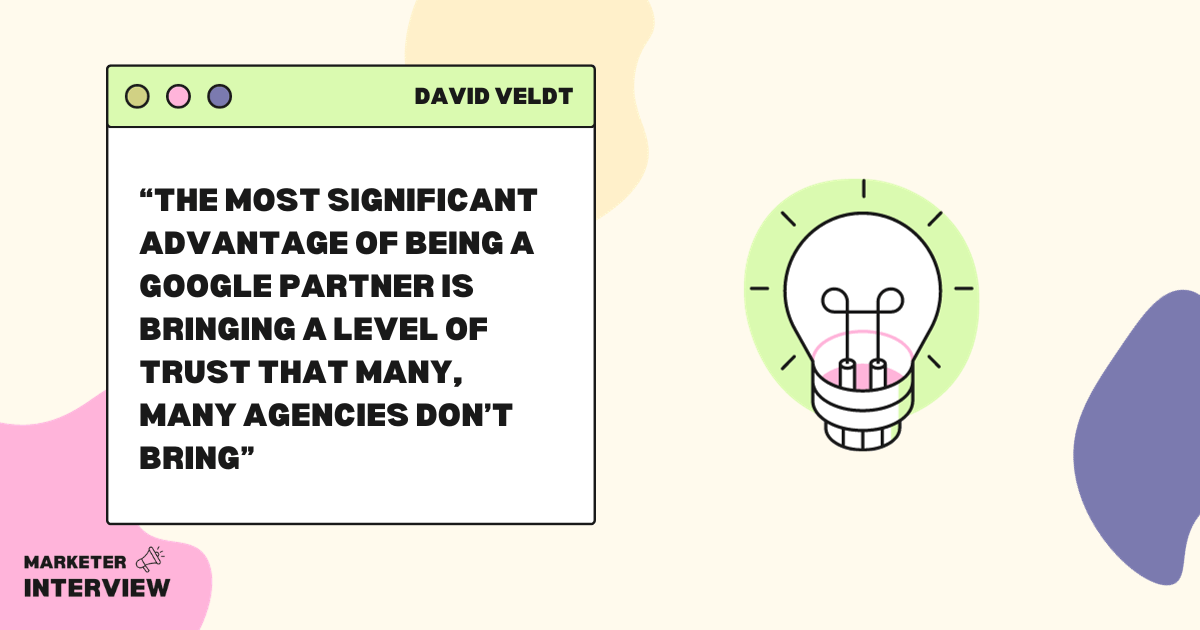
Keeping up with industry publications is a great way to learn about the latest feature rollouts and changes, but getting ahead of trends and actionable insights into improved campaign performance is all about who you follow and the communities you’re involved in. Go to the places where people in the industry are having the discussions.
The other day, I saw a case study on Reddit for a Facebook campaign strategy that blew my mind. Every day, I see people on Twitter sharing campaign insights, and I can’t wait to test them out. Discord, Slack, and LinkedIn have communities where people share their experiences, opinions, and predictions.
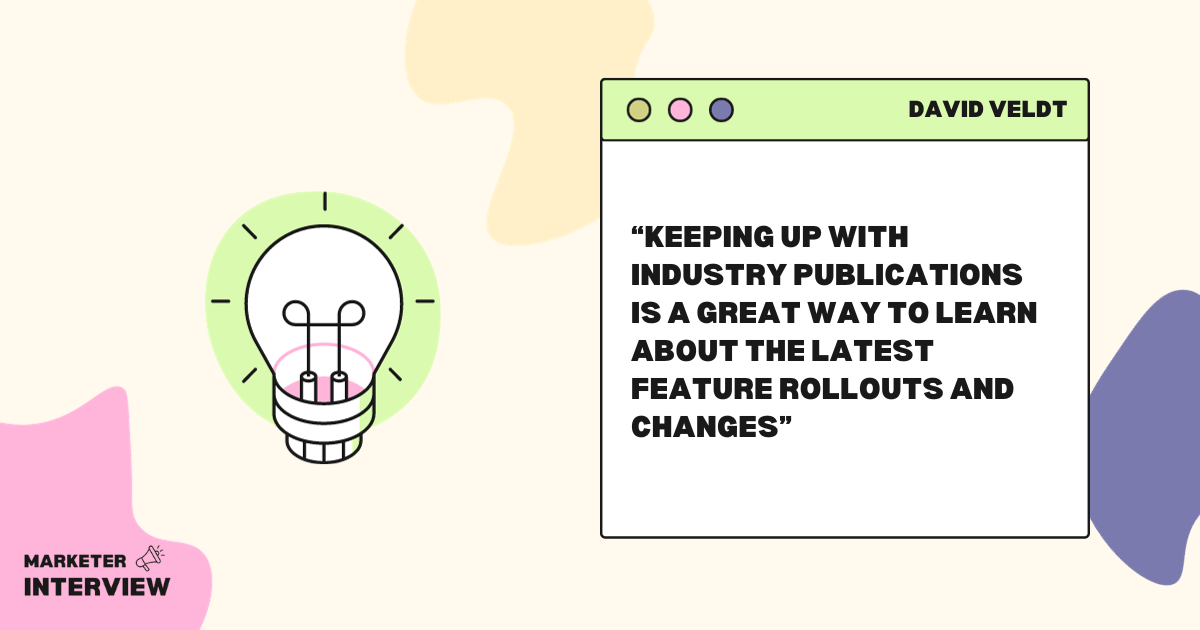
In the realm of SEO, particularly enterprise SEO, what strategies do you find most effective in achieving long-term success for your clients, considering the ever-changing algorithms of search engines?
For long-term success in enterprise SEO, we first have to check off some critical items in the short term. In those first few months, we’re trying to build our foundation, which includes analytics audits and configuration (to create benchmarks), extensive keyword research, fixing significant technical issues, and optimizing core content.
That gives us something to build on in the long term. On an ongoing basis, we’re monitoring technical issues, optimizing new content, and leaning more on content marketing and digital PR to grow in SEO.
We’re looking at the data to determine what’s driving traffic and conversions and constantly adjusting our strategy. Sometimes, that means going all-in on a new evergreen resource. Sometimes, it means changing how thousands of products are being presented.
With everything we do, a user-first mentality is and has always been, the best way to future-proof our SEO efforts.
Could you highlight some essential tools and software integral to your daily workflow in managing PPC, SEO, and analytics for Interactually?
The tools we use change often. We’ve been using Asana for some time for work management, and I’ve found it perfect for our needs.
For PPC, while it isn’t a “PPC management” tool, I’m a big fan of Looker Studio, which gives us a high-level look at several client accounts across various platforms at once. We also build most of our client-facing reports in Looker Studio; it’s a great way to help tell a story through the metrics, charts, and tables we include and how we organize them. Clients enjoy the flexibility and often request we calculate metrics they use in their internal reporting so they have everything in one place.
For SEO, I’ve lately become more of a fan of Ahrefs. I still think Google’s Keyword Planner is the best way to generate keyword ideas, in that they’ll unearth seemingly unrelated keywords I had no idea people were using to describe something I thought I had figured out. I’ll take that list of keywords over to Ahrefs for a deeper analysis of competition and priority.
We also lean heavily on GA4, Search Console, and many niche tools and extensions on an as-needed basis.
You’ve worked with diverse clients, from global brands to small businesses. How do you tailor your digital marketing strategies to suit each client’s unique needs and goals?
There is much that is different for these wide-ranging clients, but the core of the strategy is the same: How can we get the most bang for their buck? That might allow for a lot more hours or deliverables for a big brand vs. a small business, but we’re trying to focus our work on what will bring them the most sales and leads.
The details differ depending on client resources. With an SEO project for a big brand, we usually have the luxury of working directly with a talented in-house web development team, so we can make recommendations and work some big ideas into our strategy with the confidence they can get it done.
We focus the campaigns and ad spending on conversions for a PPC engagement with a small business on a limited budget. After producing results, getting an additional budget approved to launch other campaigns and move onto additional platforms becomes easier.
Looking towards the future, what emerging trends in digital marketing do you find most exciting, and how do you anticipate they will shape the industry in the coming years?
Many of the most talked about trends operate under transparency, which is fantastic. We’re seeing it everywhere. In PPC, for example, Google Ads has been rolling out required advertiser verification: You can click next to an ad and see more about the advertiser, including all of the ads they run.
In analytics, whether it’s Facebook’s battle with iOS or Google’s hasty (and messy) rollout of GA4, the primary drivers have been user privacy and data transparency. That has presented us digital marketers with some reporting challenges, but it’s nothing we can’t handle. While we’ve been spoiled with end-to-end tracking and calculating ROI to the penny, traditional marketing has succeeded with imperfect and limited data for decades so that we can adapt.
For SEO, the big shiny object – or the industry-killer, depending on who you listen to – is artificial intelligence. But studies show that people don’t want to hear from AI for certain kinds of content. Also, user sentiment is that search results are increasingly littered with junk.
So, in the long-term, I think Google will get better at weeding out AI-generated content that isn’t useful or appropriate and reward sites that are either transparent about their use of AI or publish great content by real people (read: their E-E-A-T quality rater guidelines).
